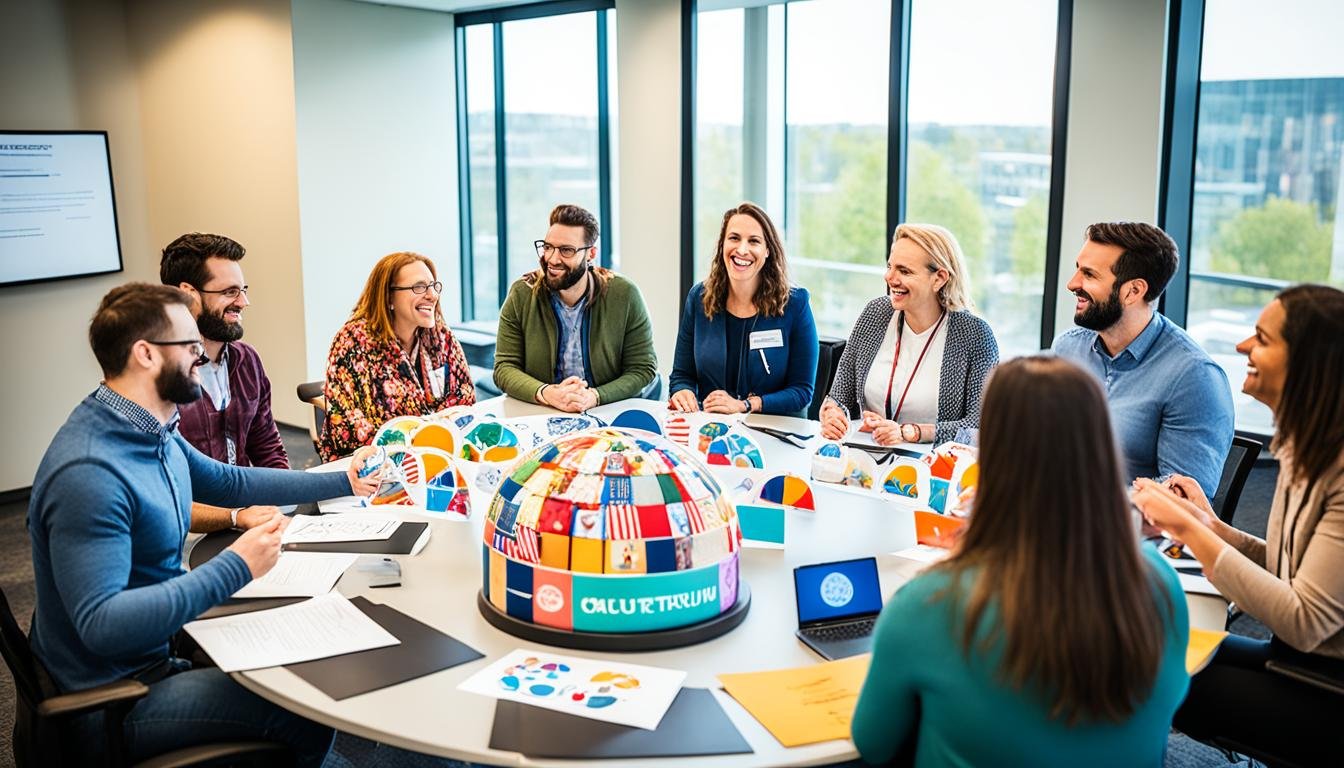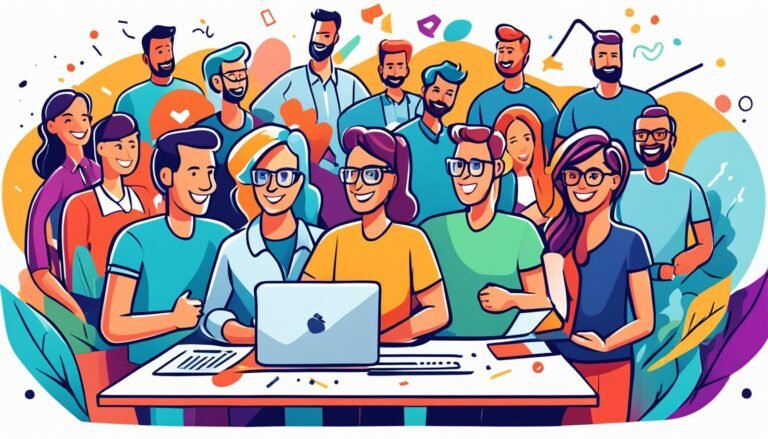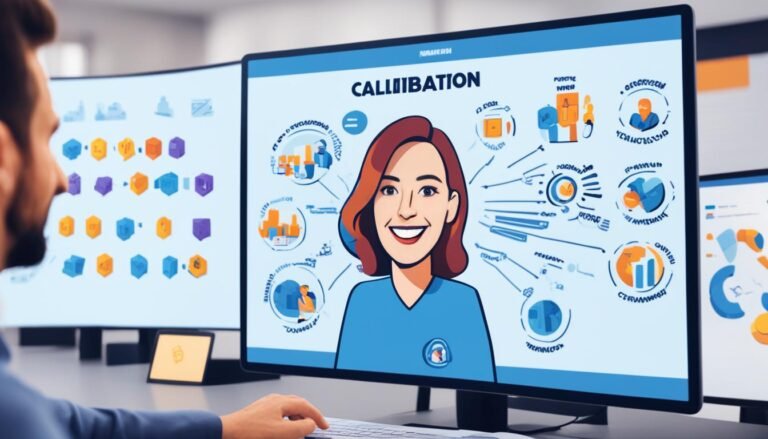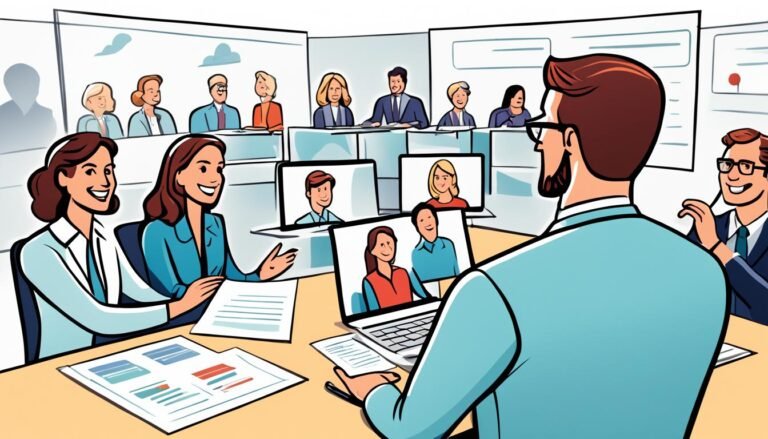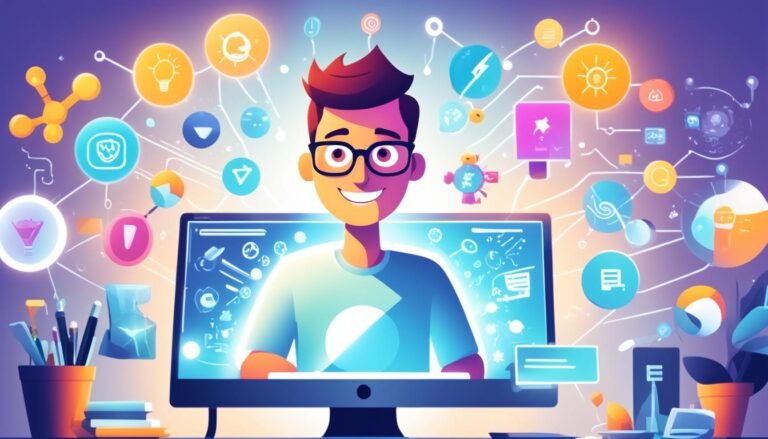Diversity & Inclusion in L&D for Irish MNCs
Have you ever thought about why workplace diversity is key for Irish multinational companies? As the world gets more connected, big companies see the value in using inclusion strategies and global talent acquisition. This approach can really help them stand out.
Now, 64% of CEOs have a plan for diversity and inclusion, and another 13% are thinking about it for the next year. It’s clear that this is not just a passing trend. It’s a must-have strategy for success.
In this article, we’ll look at how Irish MNCs are making diversity and inclusion a big part of their learning and development plans. We’ll see how they’re building a workforce that reflects the world around us. From new cultural training to programs that help leaders be more inclusive, we’ll cover the steps to make workplaces better for everyone.
Key Takeaways
- Learn why 85% of CEOs with a diversity strategy report enhanced performance.
- Understand how inclusion strategies can drive innovation.
- Discover the impact of learning and development on a diverse workforce.
- Explore the challenges and benefits of cultural awareness and unconscious bias training.
- Find out why 76% of employers consider employee retention crucial to pay strategy.
Introduction to Diversity & Inclusion in Irish MNCs
In today’s business world, Irish MNCs are seeing the value of *cultural diversity* and *inclusion in the workplace*. With a growing *multicultural workforce*, companies are seeing better innovation and economic results. A study by McKinsey & Company found that diverse and inclusive teams do much better, showing how key these values are for business success.
Creating an inclusive workplace means valuing and supporting everyone. It’s about understanding and valuing differences in race, gender, age, and more. Making sure every team member feels valued and supported is key to reaching their best potential. Leaders, especially those in middle management, play a big role in making these values part of the company culture.
PayPal Ireland is a great example of how inclusion works well. They show that by embracing diversity, businesses can do better. Their efforts in building a *multicultural workforce* prove that inclusion is good for both society and the economy.
“Organizations that prioritize genuine inclusion are eight times more likely to achieve better outcomes,” stated in a recent Deloitte report.
This table shows how diversity and inclusion help different sectors. It highlights professionals and their roles in pushing for these changes:
| Professional | Organization | Impact |
|---|---|---|
| Sonica Aron | Tata Communications | Leading initiatives and training programs aimed at cultural awareness and inclusion. |
| Milena Schwager | Sodexo@Google | Implementing inclusive leadership development practices. |
| Ketan Kapoor B. | GRP Limited | Driving diversity in hiring practices and promoting equitable workplace policies. |
For diversity and inclusion to work, regular and honest feedback is key. Talking with employees helps build a culture where open feedback is valued. As Irish MNCs grow, their focus on *cultural diversity* and *inclusion in the workplace* will be crucial for their success.
Embedding Diversity and Inclusion in L&D Strategies for Irish MNCs
Adding diversity and inclusion to Learning and Development (L&D) strategies is key for Irish MNCs. It’s a must for both doing the right thing and staying competitive. By focusing on cultural awareness, reducing bias, and developing inclusive leaders, companies can boost their culture and success.
Cultural Awareness Training
Cultural awareness training is vital for employees to grasp and respect the diversity of their global colleagues. Executives from Asia and Europe stress the importance of such training. It helps create a workplace where every culture is seen as valuable.
Unconscious Bias Mitigation
Unconscious biases can block diversity efforts and keep inequality alive at work. It’s key to tackle these biases with special training. Augustin Melendez, Chief Diversity Officer at Eastman Kodak Company, says fighting unconscious bias is a big part of their diversity work. They use a council of top executives and local diversity groups to help.
Inclusive Leadership Development
Inclusive leadership development teaches leaders how to build and support an inclusive workplace. Leaders need to understand different cultures and want to push for diversity. The Global Diversity Primer underlines the role of leaders and middle managers in making these efforts work. Companies like Walmart prove that strong leadership in diversity can really help underrepresented groups.
To truly include diversity and inclusion in L&D for Irish MNCs, a broad approach is needed. This includes *cultural awareness training*, *unconscious bias mitigation*, and *inclusive leadership development*. Together, these efforts aim to build a workplace that’s welcoming, supportive, and productive for everyone.
Challenges in Training and Developing Non-Irish Workers
In the world of training and developing non-Irish workers in Irish MNCs, there are big challenges. These challenges need detailed strategies for an inclusive and effective environment.
Language Acquisition and Training
One big challenge is language acquisition and training. It’s key to offer top-notch English language classes to help with communication. A Gallup survey shows 87% of employees want to grow and learn, pointing out the need for language training.
Yet, only 22% leave their jobs because of a lack of training. This shows how important good language programs are.
Cultural Differences and Diversity Training
Cultural differences and diversity training are vital for a united team. Training must adapt to respect everyone’s culture. This makes sure all employees feel important.
Understanding and valuing these differences can greatly improve training and help teams work better together. It’s also key to use different learning styles for better engagement and productivity.
Stakeholder Perspectives
Listening to stakeholder perspectives makes training more complete and relevant. Surveys, Delphi studies, and interviews show the importance of input from all levels. This helps balance day-to-day tasks with long-term goals.
It’s clear that L&D pros need to play a bigger role in making strategic decisions. This boosts their impact on the company’s success.
To tackle these challenges, we need a plan that looks at language, culture, and stakeholder views. This will help improve training for non-Irish workers in Irish MNCs.
Benefits of Diversity and Inclusion in the Workplace
The benefits of diversity and inclusion in the workplace are many. They boost the company culture, productivity, and innovation. By supporting workplace equity initiatives, companies make sure everyone gets a fair shot, no matter their background. This creates a place where everyone feels important.
Workplace Equity Initiatives
One big plus of workplace equity initiatives is building a fair culture. These programs help everyone feel they belong, which makes them more engaged. A CIPD report shows that programs like the CIPD Level 5 Associate Diploma in Organisational Learning and Development help a lot. They offer 175 guided learning hours and 420 hours of total qualification time.
Employee Resource Groups
Employee Resource Groups (ERGs) are key for underrepresented groups to share their stories and speak up. They offer support and help build cross-cultural competencies in the company. This diversity leads to better problem-solving and new ideas for business.
By focusing on workplace equity initiatives and employee resource groups, companies gain a lot from diversity and inclusion. Being active in these groups boosts cross-cultural skills. This makes the workforce more inclusive and ready for global challenges. These efforts make employees happier and help the company succeed.
Conclusion
In today’s global market, making diversity and inclusion key parts of learning and development (L&D) is crucial for Irish MNCs. This article has shown how to make the workplace inclusive. It covered cultural awareness training, dealing with unconscious bias, and getting different perspectives from everyone involved. Making a workplace inclusive is hard, especially with the wide range of backgrounds in the workforce.
Having a diverse and inclusive workplace has many benefits. By supporting workplace equity and creating groups for employees, companies can build a strong, forward-thinking work environment. These efforts make teams stronger and more united, which leads to better business results. With Ireland’s economy growing by 14.3% in 2023, one of the highest in the EU, Irish MNCs have a big reason to invest in diversity and inclusion.
Handling challenges like learning new languages and blending different cultures is key to inclusion. Many people support these efforts, showing the Department of Housing’s focus on stable housing, managing resources well, and good local leadership. By learning from government strategies, companies can better understand the social and political aspects of diversity.
In conclusion, making diversity and inclusion a part of Irish MNCs is a complex but rewarding journey. The benefits of doing so are huge, making the effort worth it. Irish MNCs should keep innovating and investing in D&I strategies. This way, they stay competitive globally and help their workers and society. A workplace that includes everyone is the base for a strong and thriving business.
Source Links
- CIPD | Ireland Podcasts
- Sanjeeb Lahiri
- Creating Inclusive Hiring and Work Practices | SocialTalent
- Employee Training: Foundation of Workplace Success | ITD World
- Factors Affecting Employee’s Retention: Integration of Situational Leadership With Social Exchange Theory
- Top 10 Corporate Training Companies in Ireland [2024 Updated]

